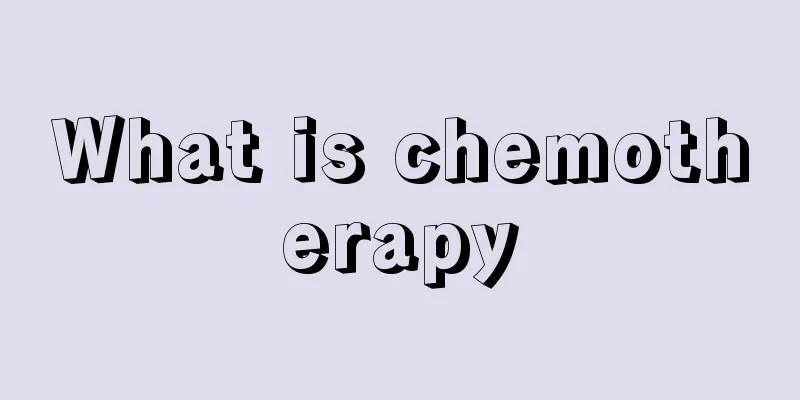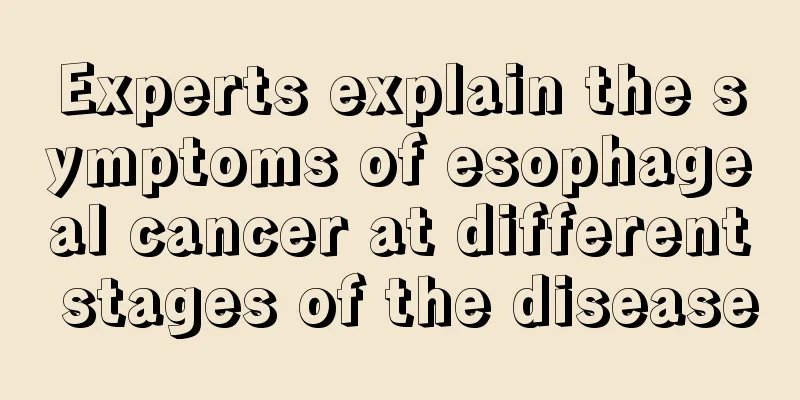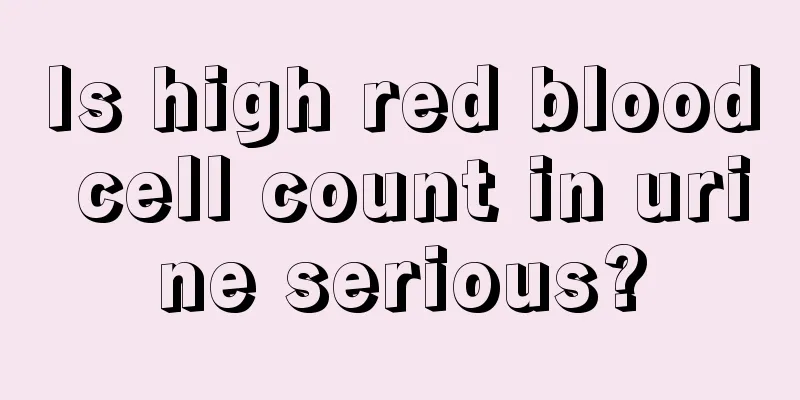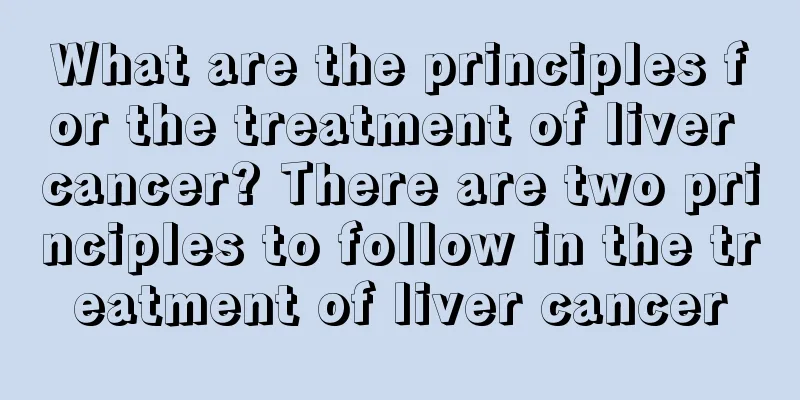What is chemotherapy

|
Speaking of chemotherapy, I believe everyone is familiar with it. This is a treatment method developed for cancer. According to current medical technology and medical level, chemotherapy is the most effective way to treat cancer, and is usually used in combination with surgery and radiotherapy. However, although chemotherapy is effective, it kills cancer cells while causing serious harm to healthy cells in the body. This article explains in detail what chemotherapy is. 1. Chemotherapy Chemotherapy is the abbreviation of chemotherapy, which achieves the treatment purpose by using chemotherapy drugs to kill cancer cells. Chemotherapy is currently one of the most effective methods for treating cancer, and is considered one of the three major cancer treatments along with surgery and radiotherapy. Surgery and radiotherapy are local treatments and are only effective for tumors at the treatment site. They are difficult to effectively treat potential metastatic lesions (cancer cells have actually metastasized, but cannot be discovered and detected clinically due to current technical limitations) and cancers that have already undergone clinical metastasis. Chemotherapy is a systemic treatment method. No matter what route of administration is used (oral, intravenous, and intracavitary administration, etc.), chemotherapy drugs will circulate in the blood and spread to most organs and tissues in the body. Therefore, chemotherapy is the main treatment for some tumors that tend to spread throughout the body and for some late-stage tumors that have already metastasized. 2. Indications In what situations is chemotherapy necessary and what regimen should be chosen? This question is highly professional and should be determined by an oncologist based on the patient's specific circumstances. Generally speaking, chemotherapy should be given in the following situations: 1. Malignant tumors that are sensitive to chemotherapy and are treated with chemotherapy as the main means of treatment may be cured through standardized chemotherapy. For example, small cell lung cancer, leukemia, malignant lymphoma, choriocarcinoma, germ cell malignant tumors, etc. 2. For sensitive or relatively sensitive malignant tumors, chemotherapy should be performed before or after surgery. 3. Palliative chemotherapy for advanced malignant tumors. 3. Side Effects Chemotherapy drugs are cytotoxic drugs, which may have some toxic side effects, the most common of which are: 1. Digestive system reaction Such as nausea, vomiting, diarrhea and constipation. Among them, nausea and vomiting is one of the most common reactions to chemotherapy. In recent years, some powerful and effective antiemetic drugs have been launched on the market, which greatly reduces the nausea and vomiting reactions after chemotherapy. 2. Bone marrow suppression Such as leukopenia and thrombocytopenia. Generally, the condition will recover on its own 1 to 2 weeks after stopping chemotherapy. For some more serious bone marrow suppression, there are drugs available that can effectively increase leukemia and platelets, so there is no need to worry. 3. Hair loss Some chemotherapy drugs may cause hair loss, but hair loss is reversible and new hair will grow back after chemotherapy is stopped. 4. Others Such as liver and kidney damage. Most of the adverse reactions and toxic side effects of chemotherapy are reversible and can be controlled or alleviated through the use of some auxiliary drugs. However, chemotherapy is a relatively intensive treatment method after all. Therefore, clinicians should strictly grasp the indications for chemotherapy, formulate chemotherapy plans in a standardized and reasonable manner, and take necessary preventive measures. |
<<: What do nursing pads look like?
>>: Side effects of head radiotherapy
Recommend
How to treat advanced prostate cancer
How is advanced prostate cancer treated? Advanced...
Arachnoid cyst surgery sequelae, treatment and care should be done well
Arachnoid cysts generally have no obvious symptom...
The cause of gastric cancer is not unique
Gastric cancer is the most common type of maligna...
How to treat insomnia caused by deficiency of both heart and spleen?
Deficiency of both the heart and spleen often occ...
Which is the best hospital for lymphoma
Malignant lymphoma, also known as "lymphoma&...
Are esophageal cancer and laryngeal cancer contagious?
Are esophageal cancer and laryngeal cancer contag...
How to provide first aid for epilepsy?
Epilepsy is epilepsy. Epilepsy refers to a diseas...
How to solve facial skin depression
Sunken facial skin may be caused by scars left by...
Can eating apples prevent lung cancer? Detailed explanation of why eating apples can prevent lung cancer
Apple is the most common fruit in our daily life ...
How to remove black scale on iron pan
Cooking in a pot is a cooking tool that we cannot...
Konjac flour can help you lose weight. How effective is konjac flour for losing weight?
When it comes to losing weight, you also need to ...
How to stretch ligaments most effectively
Many people hesitate about how to stretch ligamen...
Bringing leftovers at noon may be a risk factor for stomach cancer
What is the reason why stomach cancer "favor...
Low neutropenia
One type of white blood cell is the alkaliphilic ...
Why are my eyes swollen after a night's sleep?
Many people will experience swollen eyes after wa...









